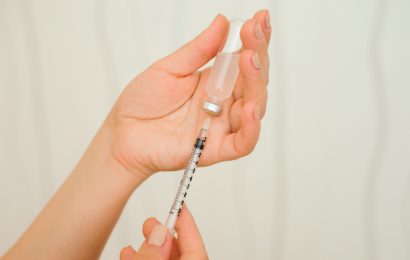Resveratrol, a plant compound known to have various antioxidant and anti-inflammatory properties in yeast, worms, fruit flies, fish, and mice, also appears to combat inflammation in humans, according to a recent study by endocrinologists at the University of Buffalo. Chronic inflammation is thought to play a role in many diseases, including Type 2 diabetes, heart disease, and stroke.
Resveratrol is produced by a number of plants, including peanuts, blueberries, bilberries, cranberries, and red grapes (it’s also found in red wine), in response to attacks by pathogens such as bacteria. It is also found in Japanese knotweed, a plant considered invasive in parts of the United States. However, makers of nutritional supplements currently use Japanese knotweed as a source of resveratrol. Previous research has indicated that resveratrol can prolong life and reduce the rate of aging in organisms such as roundworms and yeast, and animals studies have indicated that supplementation may also help to increase insulin sensitivity.
To determine whether resveratrol could have any of these effects in humans, researchers randomly assigned 20 volunteers to receive either a nutritional supplement containing 40 milligrams of resveratrol or an identical placebo pill without resveratrol. Study participants took one pill a day for six weeks; fasting blood samples were drawn at the beginning of the study and at weeks one, three, and six.
The tests showed that those in the resveratrol group experienced suppression of free radicals, unstable molecules that contribute to oxidative stress and inflammation in the body and that can ultimately cause blood vessel damage. People in this group also showed suppression of a protein known as tumor necrosis factor (TNF) and other substances known to increase inflammation and interfere with the action of insulin. Those in the placebo group did not have a change in their blood levels of these substances.
While the results of this study are promising, senior author Paresh Dandona, MD, PhD, noted that another substance in the plant extract used in the study might be responsible for the beneficial effects. He explained that “The product we used has only 20 percent resveratrol, so it is possible that something else in the preparation is responsible for the positive effects. These agents could be even more potent than resveratrol. Purer preparations are now available and we intend to test those.”
For more information, read “Plant Compound Resveratrol Shown to Suppress Inflammation, Free Radicals in Humans” or see the study’s abstract in The Journal of Clinical Endocrinology & Metabolism.




